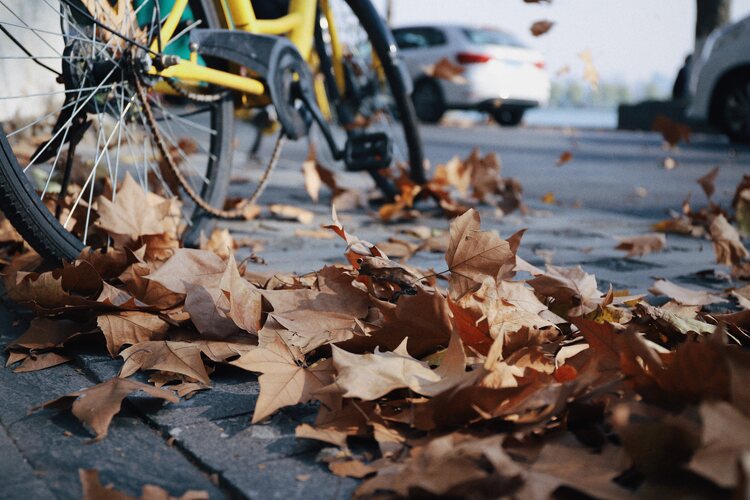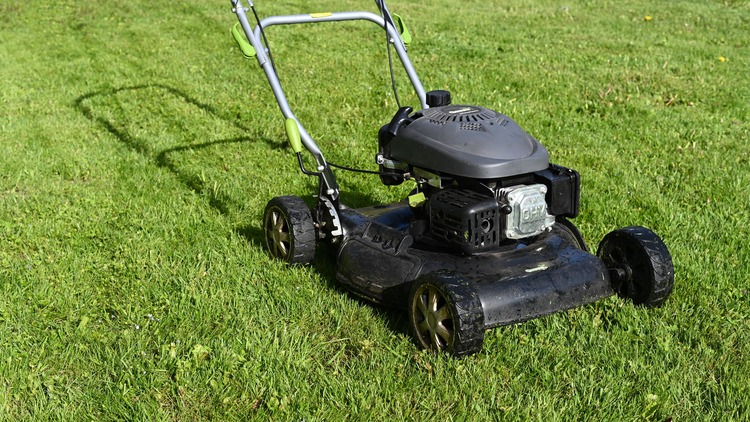“Am I supposed to change the furnace filters?”
“Why can’t I leave my garbage at the curb a few days before pickup?”
“Where am I supposed to put all the leaves after I’ve raked them?”
Whether you’re transitioning from renting to owning, or moving from a condo to a detached or semi-detached house, the learning curve can feel a little steep. If you’re lucky, your parents or a neighbour may take pity and show you the ropes. For the rest of us, we’ll have to rely on frantically Googling or going down the rabbit hole of YouTube and Reddit.
We’ve put together a non-exhaustive list of practical things a first-time homeowner should know, starting with the three questions at the top of this article.
Am I supposed to change the furnace filters?
Look, all that dirt, dust and gunk has to go somewhere. If you haven’t checked lately, take a good look at your HVAC unit (we’ll assume you have a furnace if you’re reading this question) and the air filter. Can’t remember the last time you replaced the filter? Then it’s definitely time for a replacement.
In general, how often you have to change the filter highly depends on the thickness of your filter, how often you use it and whether you have furry pets. A good rule of thumb for changing your furnace filters:
- 1” filter thickness lasts 1-2 months
- 4” filter will last you around 6 months
- 5” filter could last 12 months or longer
Why can’t I leave my garbage at the curb a few days before pickup?
Wild animals. That’s it. That’s the answer.

They’ll smell all the delicious things and may knock over your garbage cans or rip open the bags to dig through it all. If you have garbage and recycling pickup, those drivers are certainly not going to clean up all the mess if it’s scattered across your driveway or on your lawn. Your neighbours won’t be too thrilled either. Save yourself the heartache, and just keep the waste and recycling calendar on your fridge door or set a recurring reminder for your phone.
In Toronto, the city tried adding a “raccoon proof lock” to our food waste bins to try and prevent the trash pandas from getting in and making a mess. As you can see they refuse to be stopped by something as trivial as a lock. Heavy weights won’t work either as raccoons can knock over the whole bin, scattering the garbage across your driveway and granting them access to their feast.
Where am I supposed to put all the fallen leaves after I’ve raked them?

This one can vary by municipality. Depending on where you live, your options are typically:
- Wait for curbside yard waste collection days by your municipality
- Bring the yard waste to your local landfill
- Or compost them if you a somewhere to do so on your property
If you live in Toronto you might be familiar with rows of brown yard waste bags lining the streets in the fall. You’ll want to make sure you do clean up your leaves as leaving them could kill your grass and leave you with a leafy mulch for months.
How often do I need to clean my gutters?
If you live close to several mature trees, the answer is: More often than you think, and definitely more often than you like.
Gutters and downspouts protect your house and redirect water away from your foundation. You’ll know when the gutters are blocked if you see rain pouring out over the edge of your roof. Especially in winter, make sure your gutters are clear so you can minimize the risk of ice buildup. That doesn’t mean you need to start answering the call of every gutter cleaner that calls your house (and be prepared for a lot of those calls), you can find a number of guides to clean out your gutters yourself online.
How do I winterize my lawn mower?
Right before winter really hits, you’ll want to run your lawnmower and other gas-powered tools until the tank is empty. This will help protect the carburetor and gas lines while they’re sitting unused in the garage. Or you could get a push-mower and turn lawn mowing into a workout (probably not).
How often do I need to mow the lawn?

There isn’t a clear cut answer to this one but generally if you want to keep things looking good once a week is your bet. The more important question to ask is how long can your grass get before you have to cut it? Most homeowners associations won’t just let you run things into a wilderness habitat even if that’s your style, so you should generally make sure your lawn doesn’t get so long it starts looking out of place. Another thing to note: It’s generally in poor taste to mow the lawn too early in the morning or too late at night. People don’t like being woken up by the sound of a lawnmower!
What else should I know as a first-time homeowner?
- Check your smoke detectors and carbon monoxide detectors annually to make sure they’re in good working order.
- A fire extinguisher is a good idea, especially in a kitchen.
- If you are going on vacation or otherwise leaving your house vacant for a week or more, ask a neighbour or friend to check on it. Most home insurance providers will require this. Think about how much more damage a water leak can cause in one week compared to one day.
- Heating and cooling costs will be significantly higher in a house, compared to a condo or apartment. Adjust your thermostat accordingly!
- Know where your main water shut off valve is, and how to turn off the water in an emergency.
- Know where your electrical panel is and label your breakers.
- If you get mice, don’t panic. Set traps and make sure all your food is safely locked away. Around the exterior, seal any holes about the width of a pencil to prevent them from coming in..
- Clean your refrigerator coils, dryer vent, range hood, and dishwasher filter to extend the life of your appliances
- Keep your receipts and warranty information for any big ticket items in a safe place.
- Most importantly, make a plan and a budget for repairs and preventative maintenance.
Remember, if all else fails, the Internet is your friend. Welcome to the perks of homeownership! The problems are all yours, now.
For more reading on all the ins and outs of homeownership, check out this list of Reddit communities for new homeowners we compiled.






